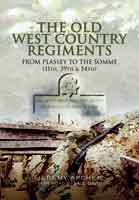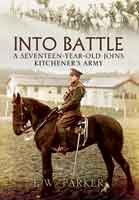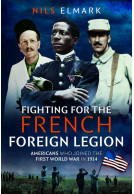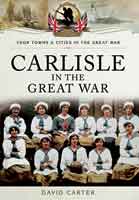The Final Curtain: Burma 1941-1945 (Hardback)
Veterans' Stories
Imprint: Pen & Sword Military
Pages: 312
Illustrations: 120 black and white integrated
ISBN: 9781399070416
Published: 15th July 2022
(click here for international delivery rates)
Order within the next 3 hours, 32 minutes to get your order processed the next working day!
Need a currency converter? Check XE.com for live rates
| Other formats available - Buy the Hardback and get the eBook for £1.99! | Price |
|---|---|
| The Final Curtain: Burma 1941-1945 ePub (68.6 MB) Add to Basket | £6.99 |
The Final Curtain: Burma 1941-1945 comprises interviews with some of the very few surviving veterans of this most arduous of campaigns. In their own words, soldiers, sailors and airmen now aged between 95 and 101 vividly recount the experiences that they endured more than seventy-five years ago. This is oral history at its best, from officers and men of 14th Army, which comprised some 100,000 British and other Commonwealth personnel, 340,000 from the Sub-Continent and 90,000 East and West Africans. The interviewees include individuals from all these groups. Their accounts cover the retreat from Burma, the Chindit operations behind Japanese lines, the hard-fought struggle in the Arakan, the crucial battles at Kohima and Imphal, and the final advance to Rangoon, culminating in a decisive victory.
The veterans featured in this fascinating collection include a Primus (Archbishop) of the Scottish Episcopal Church, a former Chairman of Manchester City Football Club, and the Principal of the Accra Polytechnic in Ghana as well as two career Army officers. Regardless of their post war achievements, all the contributors share the distinction of having served in a hugely demanding and ultimately victorious campaign against a merciless enemy. Their accounts make for inspiring and unforgettable reading.
This review of Final Curtain, Burma 1941-1945, Veterans’ Stories is a very much a personal, rather than literary review, as I confess to having read very little of the bibliography of the Burma Campaign beyond the seminal Defeat into Victory by Field Marshal Slim. My own lack of reading aside, it is generally accepted that, just as the Fourteenth Army was dubbed the Forgotten Army, the Burma campaign has received significantly less literary and cinematic attention than the war in Europe. So this significant and unusual contribution by Jeremy Archer, a Trustee of the Burma Star Memorial Fund, is a most welcome and timely addition, particularly as the 80th anniversary of VJ Day is now not so very far beyond the horizon.
Mike Montagu, Host and Historian
The book has a conventional structure featuring: a personal and very to-the-point Foreword by the then Prince of Wales; a campaign summary; the 41 veterans’ stories - the heart of the book; - and finally a truly poignant account of reconciliation through a chance encounter of the most random kind, which provides a rather special conclusion. The inclusion in the prefacing sections of the Burma Star Memorial Fund and the Final Burma Star Reunion helps underscore the importance and meaning of this vanishing community of veterans and their extraordinary experiences and achievements, which the accounts rather than the campaign summary bring out. While the overview is commendably concise with its salient facts and some surprising stats (including the 65,000 Chinese in the Fourteenth Army), I would have, nonetheless, happily settled for a slightly fuller account of the campaign – a reflection, no doubt, of my own lack of knowledge.
The personal accounts of the veterans are narrated in both the first and third person through a seamless switching between the two. Each one stands on its own and is of equal value, with none being accorded any particular weight or standing as they are sequenced in alphabetical order – only the length of the individual account varies, inevitably. Having read first my own father’s account on receipt of the book (despite having seen previous drafts), I quickly came to appreciate the much wider interest that attaches to the telling of these extraordinary experiences endured by men who all saw themselves as ordinary. And the preponderance of Army memoirs does not affect this dynamic, as the Navy, RAF and Commonwealth contributions are equally compelling. In every account, there is modesty, dry humour and an underplaying of the horror, yet the physical and mental challenges, pressures and privations, which did not always cease at the end of hostilities, are revealed nonetheless. Not least among these was the return to civilian life.
While the tone of each account is consistent, and there are common themes such as the continual curse of sickness and the respect for the tenacity and courage of the Japanese soldier, but also relief expressed by so many contributors at the dropping of the Hiroshima bomb, there is much variety in the detail. Individuals: witnessing the appalling devastation of an atomic bomb; keeping guard at the peace talks; protecting from the vengeful wrath of the local population a Japanese PoW on his way to jail for execution; then cooperating effectively and seemingly harmoniously with Japanese defeated forces, sometimes armed, to keep local order: even sailing, by one individual’s estimation, the equivalent distance of twice round the globe during the course of his war is extraordinary, if less dramatic. All quite remarkable experiences in themselves. Equally remarkable and reassuring, the humanity and empathy shines through despite such terrible ordeals, along with the recognition of the importance and validity of the contributions of other parties – nowhere better exemplified by the extraordinary, and somewhat irregular, Mentioned in despatches award to Sweeper Kantu for his heroic and exposed round-the-clock ministrations (even during ferocious Japanese attacks) to prevent further worsening of the dire sanitary conditions.
Final Curtain concludes with a moving tale of reconciliation related by the son of Lieutenant General Shankarrao Thorat, my father’s commanding officer in Burma. It starts with a chance encounter in 1980 in a railway carriage in Switzerland with the son of the Japanese commander who surrendered to Thorat after the battle of Melrose, described by Mountbatten as ‘the bloodiest battle of the Arakan’ with its 2,000 Japanese and eight hundred Indian dead. The action was of special significance as it was the first time such a pivotal battle had been led exclusively by Indian commanding officers of the All-India Brigade. The revelation of the conversation left me moved but ultimately heartened by the understanding intuited, despite profound cultural differences, between the commanders at the moment of formal surrender, which led thirty five years later to deeper understanding and reconciliation between the sons. The revelation’s detail I will not spoil for the reader of this special record, which I strongly recommend to all who wish to understand what still had to be done and endured by these veterans beyond VE Day.
I would certainly recommend this book highlighting such an important part of WWII.
The History Fella
Read the Full Review Here
We very highly recommend this book to all levels of readers.
Clash of Steel
Read the Full Review Here
What a well-produced and extremely interesting book it is. Thank you for all the hard work you put in to make it so. My father would have been very proud (and perhaps somewhat embarrassed) to be in the book but it is a fitting tribute to all who served in the Burma campaign.
Alan, son of Fred Behagg - Feedback from the Veterans and their Families
I love the title and I’ve read my story. It’s very natural and well-written and the pictures have come out really well.
Idris Jones - Feedback from the Veterans and their Families
This book will be a must-read for those with an interest in the Far East campaign and/or FEPOW. The testimonies of these people deserve a wider audience, and as we prepare to say a final goodbye to the last of our Second World War veterans, this is a timely publication.
Amazon Customer, Paul Nixon
There are 41 separate 'stories' here and a nice forward by HRH The Prince of Wales. Jeremy Archer is a seasoned military history author and scholar and this book deserves to do well.
5 out 5
About Jeremy Archer
After serving for ten years with The Devonshire and Dorset Regiment, Jeremy Archer worked in the City for almost thirty years. He has been a Trustee of the Burma Star Association since 2012, focusing on fund-raising and also bringing Burma veterans’ stories to a wider audience. His numerous military history publications include co-editing The Devonshire and Dorset Regiment 1958-2007 (Pen and Sword Military, 2007); The Old County Regiments: from Plassey to the Somme; and A Military Miscellany. He regularly writes for the British Army Review, the Journal of the Kilvert Society, Dorset Life, and Stand To!, the Journal of the Western Front Association. In 2019, Jeremy took an MA in Military History by Research at the University of Buckingham.
















